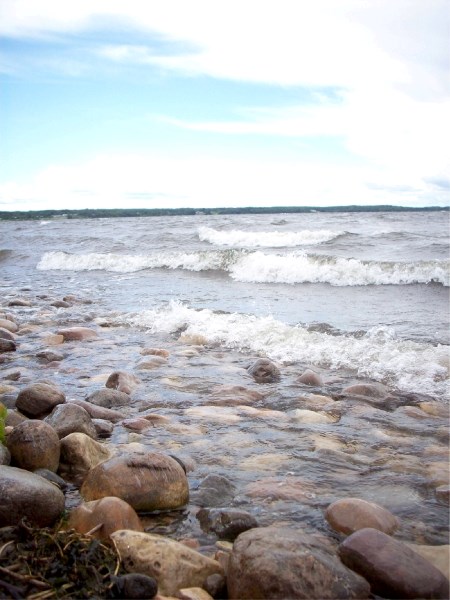An environmental group is formally challenging Cenovus Energy’s application to draw water from eastern Lac La Biche County. The company is applying to use up to 13,250 cubic metres – or 1.3 million litres – of water from over 20 creeks, lakes, and rivers to expand their Foster Creek oil project near the Cold Lake Air Weapons Range.
The Keepers of the Athabasca – who work toward conservation of the Athabasca watershed – sent a statement of concern to Alberta Environment and Water on Dec. 16, saying the company hasn’t properly consulted with groups that could be affected by the water use.
“Much wildlife will be displaced and disrupted,” the statement read. “What is your plan to negate this?”
Jessica Cardinal, a representative for Keepers of the Athabasca and Kikino Métis Settlement resident, said the company showed their lack of consultation with local First Nations and Metis people by saying that 14 bodies of water in eastern Lac La Biche County are unnamed.
“In Indian country there’s no such thing as an unnamed body of water, even the smallest body of water has a name,” Cardinal said. “Cenovus and other companies need to do their homework. If they are taking so much water from 20 bodies of water, then what are the effects? I know there are people willing to work with them to help them understand the cumulative effects, but there needs to be that consultation first.”
The water taken from eastern Lac La Biche County won’t be used for steam generation or industrial purposes, but for wetting dusty roads in the summer and making ice roads in the winter, said Cenovus spokesperson Jessica Wilkinson. She said they are applying for a permanent water permit, instead of reapplying annually.
Wilkinson said the company followed recommendations from Alberta Environment and Water, who advised them that formal consultation with local First Nations, Metis, or other possible affected groups wouldn’t be necessary.
“Our Aboriginal relations department said Alberta Environment provides direction when it comes to consulting with First Nations,” Wilkinson said. “They said the public notice [in the Post] gave everyone a chance to input their comments. No, we haven’t directly consulted with First Nations – the actual regulatory direction came from [Alberta Environment] in this case.”
George Poitras, Former chief of Mikisew Cree Nation and vocal opponent of unchecked oil sands development, said Cenovus could be violating treaty rights by taking so much water from lakes in eastern Lac La Biche County.
“The area Cenovus is planning on exploring is considered the traditional land of Métis and First Nations people,” Poitras said. “The government or the company should have a legal obligation to consult with First Nations – especially if it affects constitutional treaty rights.”
He said drawing water from even the smallest body of water could harm the people who fish in the area.
“I thought it was crazy when we read Cenovus suggesting there’s unnamed bodies of water [in Lac La Biche County],” Poitras said. “There’s a critical issue in Lac La Biche of this unfettered pace of development.”
Jessica Potter, a spokesperson for Alberta Environment and Water, said Cenovus was not required to directly engage possible affected groups in Lac La Biche County, but they did hold open houses in Conklin and Janvier as well as advertising in the Post and the Alberta Sweetgrass newspaper.
“Basically, we understood that Cenovus is actively engaged in numerous other consultation processes,” Potter said. “We talked to [Intergovernmental, International and Aboriginal Relations], who said it wasn’t necessary to do a formal consultation.”
She said the reason the government asked Cenovus to apply for a permanent license was so they could better track the cumulative effects of water use in the area. The company would be required to renew the license on a regular basis, and provide information on their water use as part of the renewal process.
And she said the application is just that – an application, not an approval. That means it’s under review, and all input – including the strongly worded statement from the Keepers of the Athabasca – has to be considered.
But Cardinal with the Keepers said Cenovus could, and should, do more than the minimal effort suggested by the government.
“Cenovus is also accountable here,” she said. “Not just to the Alberta government, but to the Métis and First Nations people, and the people of Lac La Biche County. There’s been no consultation, no environmental impact assessment, and no sustainable impact reports.”



